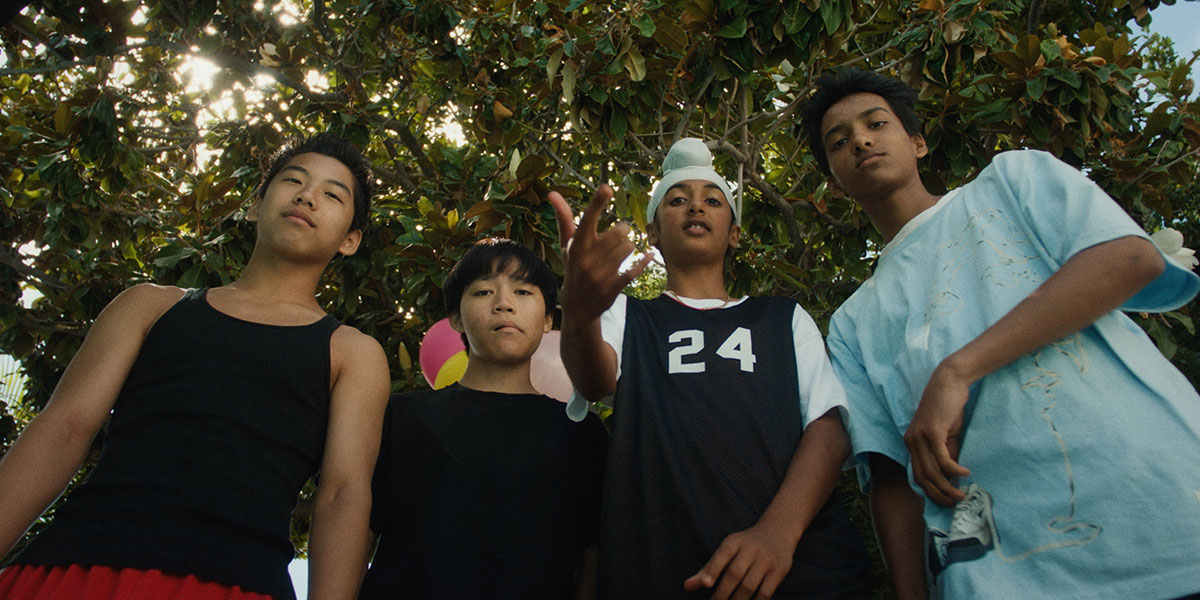On Jan. 19, “Dìdi” premiered at the 2024 Sundance Film Festival where it won the U.S. Dramatic Special Jury Award for Best Ensemble and Audience Award: U.S. Dramatic.
The film follows Chris Wang (Issac Wang), nicknamed Wang Wang and referred to as Dìdi by family, which means “little brother” in Mandarin. Dìdi navigates friendship and a crush and finds his own identity the summer before starting high school in this semi-autobiographical story by director Sean Wang. Similar to Wang—and by extension Chris—I grew up in Fremont, California where the story takes place, and I even went to the high school where Chris skateboards. A couple of my high school friends had recommended the movie to me, and I’ll be honest and say that I went into this film with incredibly high expectations, but the film unfortunately fell a little short.
However, I will talk about that a little later. There were many things that this film did well, and the first was its ability to resonate with its audience—and not just its Asian American audience. That in part was due to how grounded the film was. Both its dialogue and portrayal of adolescence were incredibly realistic. Although the storyline may have been exaggerated, it perfectly captured teenage awkwardness and the need for acceptance. It’s filled with angst and second-hand embarrassment, yet also invokes empathy for Chris’ flawed character.
Speaking of the film’s cultural aspect, although there was a generational gap between Wang and me, Wang portrayed some universal Asian American experiences. Some minuscule moments, such as Chris and his elder sister Vivian’s feelings of embarrassment when their mother uses an umbrella as a sunshade, and conflicts in generational priorities—particularly revolving around education—hit close to home.
Wang’s depiction of these universal experiences was also unique. Showcasing Chris’ passion for film truly captured the essence of living during the 2000s, with scenes shot from a camcorder or of typing on Myspace. Its cinematography draws the audience into the time period, even for those who didn’t experience it. And for me, it was a reminder of how the story was inspired by real life and real memories.
Another major strength of this film was its acting. While Chris was definitely the main character, another crucial role was his mother, Chungsing (Joan Chen). Both Wang and Chen perfectly embodied their characters: Chris as he struggles with insecurity and identity and his mother as her efforts go unappreciated in the household. Their relationship is the most compelling in the film as they grow to understand each other’s hardships.
However, my biggest gripe with the film was its storyline. I understood its overarching theme of coming of age and generally enjoy open-ended films, but “Dìdi” left me with too many unanswered questions. Each scene told its own story, and one could argue that while it captures the uncertainty of the future and of growing up—which is fair—it still left me feeling that the story wasn’t fully complete.
To me, this film was definitely thought-provoking and prompted reflection on my own experiences growing up. Fremont and the entire Bay Area are home to a large population of Asian Americans; yet somehow, many still seem to have a common experience of detesting their culture and heritage growing up. There was a scene where Chris pretends he is half-Asian due to his embarrassment of his Asian heritage. While I have never pretended to be half-Asian, growing up I was familiar with the feeling of detesting my Chinese heritage, something I have since grown to love. This film sheds light on how American culture—especially with the emergence of social media—has influenced the way we view our identity.
The film was incredibly personal to me for another reason, too. I myself have a younger brother, my own Dìdi, whom I watched move into his freshmen dorm earlier last month. Watching the scene where Vivian and Chris take down the glow-in-the-dark stars together after spending a majority of the film fighting was heart-wrenching. And in my opinion, this film isn’t just made for nostalgia—it carries a real message. The film ends with Chris and his mother sitting at the dining room table, each with a bit more empathy for the other and their struggles. The message I had received from the film is a reminder—particularly for immigrant families, whose relationships often end up strained as a result of generation and cultural differences—to be a little more understanding of family and to call my parents more often.



